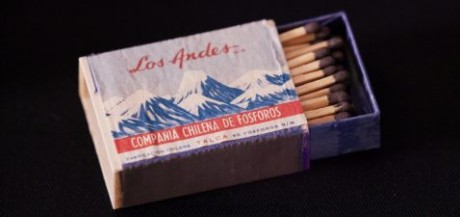


Patricio Guzmán: The Cordillera of Dreams

He speaks slowly. With a calm voice. The totally mastered personal text of Patricio Guzmán takes the viewer back to the Chile that he left after the coup d’état in 1973. All his films, he mentions in this third part of a trilogy (Nostalgia for the Light and The Pearl Button are the two first) deals with his beloved country. This time with the „Cordillera de los Andes” as the metaphoric background – with stunningly beautiful images of the mountains, the rocks with or without snow, a wall as he says, a mystery as one of his interviewes says, where stories are hidden; history, the traumatic past of a country that is still suffering from the dictatorship of Pinochet.
“I’m not a sociologist. Neither am I a politician. I make films that are metaphorical and poetic; I interpret reality through my own personal way of looking”… Guzman has said in connection with the trilogy. A documentary essayist as was Chris Marker, who helped Guzman to get negative material to continue filming what became “The Battle of Chile” (Below a link for the cinephiles, an article where Guzman tells about his relationship to Marker, quite a story about the generosity of the latter!).
Back to the film and the Cordillera that takes up 80% of Chile, from North to South. The Cordillera that turns its back to Santiago, the city where the 79 year old director was born. He takes us to the house where he was born, the facade is intact, the rest is a ruin. And he takes us to the house, where he and his colleagues met in the morning before they went to the streets to film for “The Battle of Chile”.
He remembers his days in the stadium, where Chile, some days before it became the place, where political opponents were taken by Pinochet and his thugs before thousands of them disappeared, had played football against Italy. And he goes to the empty skyscraper, where Pinochet and his people implemented the neoliberal economy – Milton Friedman was his advisor – that still reigns the country. The Cordillera is now mostly on foreign hands!
Guzmán talks to sculptors, a volcanologist who have lovely descriptions of their relationship to the Codillera as well as persons who analyses the political and economical situation of Chile today. But first and foremost he visits Pablo Salas, journalist and documentarian.
He stayed, I fled. He filmed (from the beginning of the 1980es) here, I made my films from a distance, Guzmán says with his mournful voice. Salas shows clips from his video library, demonstrations, brutality, water canons, tear gas, arrests, clubs hitting the demonstrators. But there was so much that was not filmed, says Salas referring to the concentration camps, the torture chambers etc.
It is a divided country, says Salas, so many live from the copper. Anyhow, the two – Salas and Guzmán – have hopes for the future, at least film-wise, «there are so many young film directors who document and interpret what is happening». Guzmán ends his film wishing that Chile could come back to its (his) childhood and joy.
Chile, 2019, 86 mins.
http://www.filmkommentaren.dk/blog/blogpost/4821/ – more about Guzmán on this site.
And there are several masterclasses with Patricio Guzmán, just google.
https://chrismarker.org/chris-marker-2/patricio-guzman-what-i-owe-to-chris-marker/
https://vimeo.com/278586384 (a vimeo, one and a half hour with Pablo Salas)